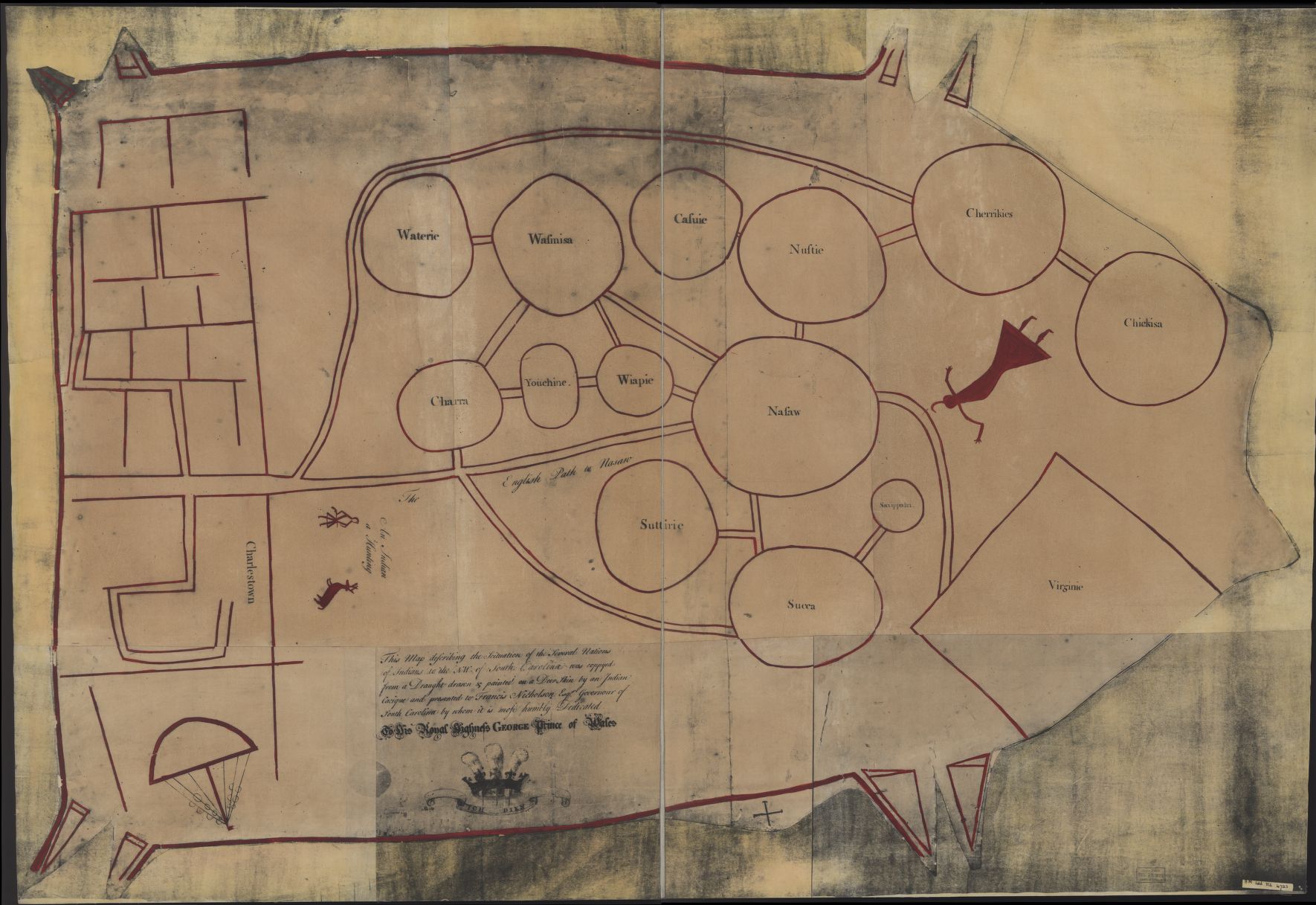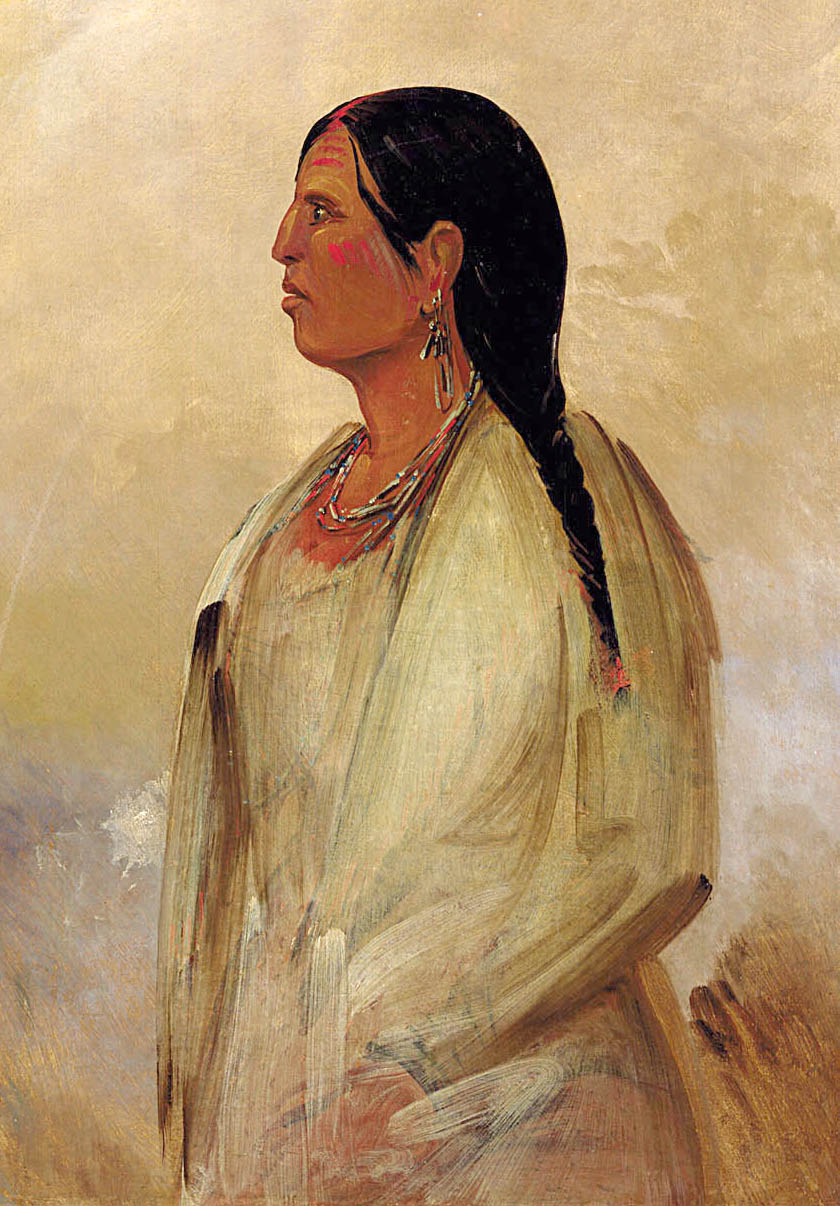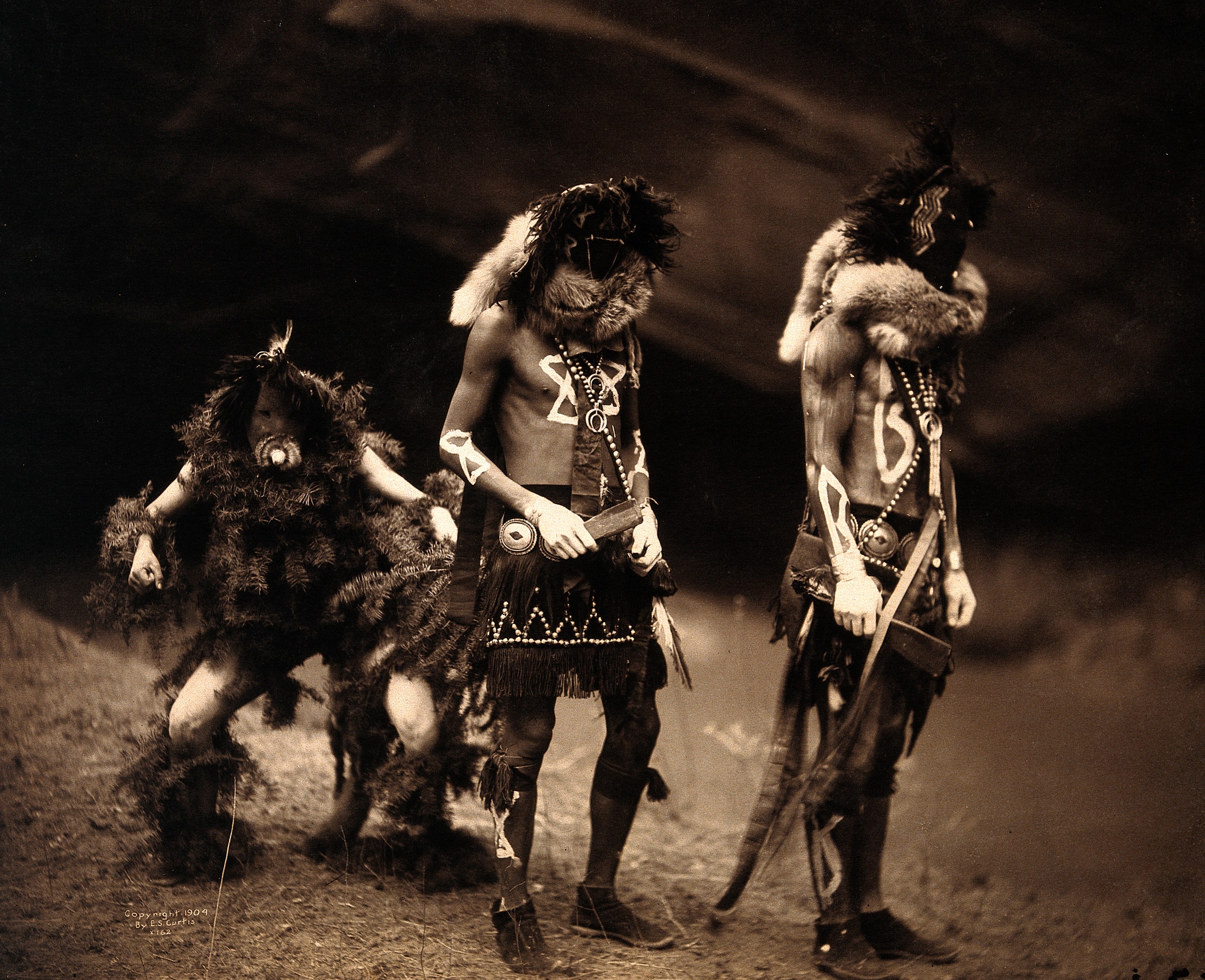|
Wateree People
The Wateree were a Native American tribe in the interior of the present-day Carolinas. They probably belonged to the Siouan-Catawba language family. First encountered by the Spanish in 1567 in Western North Carolina, they migrated to the southeast and what developed as South Carolina by 1700, where English colonists noted them. There they had settled along the Wateree River, near the site of what developed as present-day Camden, South Carolina. Originally a large tribe, they suffered high mortality during the Yamasee War of 1715 and became extinct as a tribe by the end of the century. Language and name The name ''Wateree'' may come from Catawban ''wateran'', "to float on the water" or from ''yeh is-WAH h'reh'', meaning "people of the atereeriver". 16th- and 17th-century history This people were recorded in 1567 by Spanish captain Juan Pardo's scribe Juan de la Bandera during their expedition through the interior of the Carolinas. Bandera called them the ''Guatari'' in his j ... [...More Info...] [...Related Items...] OR: [Wikipedia] [Google] [Baidu] |
Siouan Language
Siouan or Siouan–Catawban is a language family of North America that is located primarily in the Great Plains, Ohio and Mississippi valleys and southeastern North America with a few other languages in the east. Name Authors who call the entire family ''Siouan'' distinguish the two branches as '' Western Siouan'' and '' Eastern Siouan'' or as ''Siouan-proper'' and ''Catawban''. Others restrict the name "Siouan" to the western branch and use the name ''Siouan–Catawban'' for the entire family. Generally, however, the name "Siouan" is used without distinction. Family division Siouan languages can be grouped into the Western Siouan languages and Catawban languages. The Western Siouan languages can be divided into Missouri River languages (such as Crow and Hidatsa), Mandan, Mississippi River languages (such as Dakotan, Chiwere- Winnebago, and Dhegihan languages), and Ohio Valley Siouan branches. The Catawban languages consist only of Catawban and Woccon. Proto-Siouan Previous ... [...More Info...] [...Related Items...] OR: [Wikipedia] [Google] [Baidu] |
Yadkin River
The Yadkin River is one of the longest rivers in North Carolina, flowing . It rises in the northwestern portion of the state near the Blue Ridge Parkway's Thunder Hill Overlook. Several parts of the river are impounded by dams for water, power, and flood control. The river becomes the Pee Dee River at the confluence of the Uwharrie River south of the community of Badin and east of the town of Albemarle. The river then flows into South Carolina near Cheraw, which is at the Fall Line. The entirety of the Yadkin River and the Great Pee Dee River is part of the Yadkin-Pee Dee River Basin. Etymology The meaning of the word Yadkin, derived from ''Yattken'', or ''Yattkin'', a Siouan Indian word, is unknown. In Siouan terminology it may mean "big tree" or "place of big trees." Alternate names include: :Adkin River :Atkin River :Big Yadkin River :Reatkin River :Sapona River :Yatkin River Yadkin County, North Carolina, and its county seat, the town of Yadkinville, are named af ... [...More Info...] [...Related Items...] OR: [Wikipedia] [Google] [Baidu] |
Native American History Of South Carolina
Native may refer to: People * Jus soli, citizenship by right of birth * Indigenous peoples, peoples with a set of specific rights based on their historical ties to a particular territory ** Native Americans (other) In arts and entertainment * Native (band), a French R&B band * Native (comics), a character in the X-Men comics universe * Native (album), ''Native'' (album), a 2013 album by OneRepublic * Native (2016 film), ''Native'' (2016 film), a British science fiction film * ''The Native'', a Nigerian music magazine In science * Native (computing), software or data formats supported by a certain system * Native language, the language(s) a person has learned from birth * Native metal, any metal that is found in its metallic form, either pure or as an alloy, in nature * Native species, a species whose presence in a region is the result of only natural processes Other uses * Northeast Arizona Technological Institute of Vocational Education (NATIVE), a technology school d ... [...More Info...] [...Related Items...] OR: [Wikipedia] [Google] [Baidu] |
Native American History Of North Carolina
Native may refer to: People * Jus soli, citizenship by right of birth * Indigenous peoples, peoples with a set of specific rights based on their historical ties to a particular territory ** Native Americans (other) In arts and entertainment * Native (band), a French R&B band * Native (comics), a character in the X-Men comics universe * ''Native'' (album), a 2013 album by OneRepublic * ''Native'' (2016 film), a British science fiction film * ''The Native'', a Nigerian music magazine In science * Native (computing), software or data formats supported by a certain system * Native language, the language(s) a person has learned from birth * Native metal, any metal that is found in its metallic form, either pure or as an alloy, in nature * Native species, a species whose presence in a region is the result of only natural processes Other uses * Northeast Arizona Technological Institute of Vocational Education (NATIVE), a technology school district in the Arizona portion of ... [...More Info...] [...Related Items...] OR: [Wikipedia] [Google] [Baidu] |
Siouan Peoples
Siouan or Siouan–Catawban is a language family of North America that is located primarily in the Great Plains, Ohio and Mississippi valleys and southeastern North America with a few other languages in the east. Name Authors who call the entire family ''Siouan'' distinguish the two branches as '' Western Siouan'' and '' Eastern Siouan'' or as ''Siouan-proper'' and ''Catawban''. Others restrict the name "Siouan" to the western branch and use the name ''Siouan–Catawban'' for the entire family. Generally, however, the name "Siouan" is used without distinction. Family division Siouan languages can be grouped into the Western Siouan languages and Catawban languages. The Western Siouan languages can be divided into Missouri River languages (such as Crow and Hidatsa), Mandan, Mississippi River languages (such as Dakotan, Chiwere- Winnebago, and Dhegihan languages), and Ohio Valley Siouan branches. The Catawban languages consist only of Catawban and Woccon. Proto-Siouan Previou ... [...More Info...] [...Related Items...] OR: [Wikipedia] [Google] [Baidu] |
Indigenous Peoples Of The Southeastern Woodlands
Indigenous peoples of the Southeastern Woodlands, Southeastern cultures, or Southeast Indians are an ethnographic classification for Native Americans who have traditionally inhabited the area now part of the Southeastern United States and the northeastern border of Mexico, that share common cultural traits. This classification is a part of the Eastern Woodlands. The concept of a southeastern cultural region was developed by anthropologists, beginning with Otis Mason and Frank Boas in 1887. The boundaries of the region are defined more by shared cultural traits than by geographic distinctions.Jackson and Fogelson 3 Because the cultures gradually instead of abruptly shift into Plains, Prairie, or Northeastern Woodlands cultures, scholars do not always agree on the exact limits of the Southeastern Woodland culture region. Shawnee, Powhatan, Waco, Tawakoni, Tonkawa, Karankawa, Quapaw, and Mosopelea are usually seen as marginally southeastern and their traditional lands represent the b ... [...More Info...] [...Related Items...] OR: [Wikipedia] [Google] [Baidu] |
Catawba River
The Catawba River originates in Western North Carolina and flows into South Carolina, where it later becomes known as the Wateree River. The river is approximately 220 miles (350 km) long. It rises in the Appalachian Mountains and drains into the Piedmont, where it has been impounded through a series of reservoirs for flood control and generation of hydroelectricity. The river is named after the Catawba tribe of Native Americans, which lives on its banks. In their language, they call themselves "yeh is-WAH h’reh", meaning "people of the river." The river rises in the Blue Ridge Mountains in western present-day McDowell County, North Carolina, approximately 20 miles (30 km) east of Asheville. It flows ENE, falling over two waterfalls, Upper Catawba Falls and Catawba Falls, before being dammed by Lake James, and joining the Linville River. It passes north of Morganton, then southeast through Lake Rhodhiss and Lake Hickory just north of Hickory, and into the Lake Norma ... [...More Info...] [...Related Items...] OR: [Wikipedia] [Google] [Baidu] |
Yamasee
The Yamasees (also spelled Yamassees or Yemassees) were a multiethnic confederation of Native Americans who lived in the coastal region of present-day northern coastal Georgia near the Savannah River and later in northeastern Florida. The Yamasees engaged in revolts and wars with other native groups and Europeans living in North America, specifically from Florida to North Carolina. The Yamasees, along with the Guale, are considered from linguistic evidence by many scholars to have been a Muskogean language people. For instance, the Yamasee term "Mico", meaning chief, is also common in Muskogee. After the Yamasees migrated to the Carolinas, they began participating in the Indian slave trade in the American Southeast. They raided other tribes to take captives for sale to European colonists. Captives from other Native American tribes were sold into slavery, with some being transported to West Indian plantations. Their enemies fought back, and slave trading was a large cause of th ... [...More Info...] [...Related Items...] OR: [Wikipedia] [Google] [Baidu] |
John Lawson (explorer)
John Lawson (27 December 1674 – 16 September 1711) was an English explorer, naturalist and writer. He played an important role in exploring the interior of colonial North Carolina, South Carolina and Georgia, publicizing his expeditions in a book. He founded two settlements in North Carolina: Bath and New Bern, both located on rivers in the coastal plain. He was killed by Tuscarora people during the outbreak of the Tuscarora War. Early life and education John Lawson was born in England. Little is known definitively about his early life. He appears to have been the only son of Dr. John Lawson (1632-c.1690) and Isabella Love (c.1643-c.1680). Both were from London. The family owned land near Kingston upon Hull, where Lawson may have been educated in his youth. He attended lectures at Gresham College, where the Royal Society often met. His education seems evidenced by his book. His freedom to explore and take charge suggest he was well-placed in society. After an acquaintance in ... [...More Info...] [...Related Items...] OR: [Wikipedia] [Google] [Baidu] |
Indians NW Of South Carolina
Indian or Indians may refer to: Peoples South Asia * Indian people, people of Indian nationality, or people who have an Indian ancestor ** Non-resident Indian, a citizen of India who has temporarily emigrated to another country * South Asian ethnic groups, referring to people of the Indian subcontinent, as well as the greater South Asia region prior to the 1947 partition of India * Anglo-Indians, people with mixed Indian and British ancestry, or people of British descent born or living in the Indian subcontinent * East Indians, a Christian community in India Europe * British Indians, British people of Indian origin The Americas * Indo-Canadians, Canadian people of Indian origin * Indian Americans, American people of Indian origin * Indigenous peoples of the Americas, the pre-Columbian inhabitants of the Americas and their descendants ** Plains Indians, the common name for the Native Americans who lived on the Great Plains of North America ** Native Americans in the Uni ... [...More Info...] [...Related Items...] OR: [Wikipedia] [Google] [Baidu] |
Rowan County, North Carolina
Rowan County is a County (United States), county in the U.S. state of North Carolina that was formed in 1753, as part of the British Province of North Carolina. It was originally a vast territory with unlimited western boundaries, but its size was reduced to 524 sq mi after several counties were formed from Rowan County in the 18th and 19th centuries. As of the 2020 United States census, 2020 census, its population was 146,875. Its county seat, Salisbury, North Carolina, Salisbury, is the oldest continuously populated European-American town in the western half of North Carolina. Rowan County is located northeast of Charlotte, North Carolina, Charlotte, and is considered part of the Charlotte metropolitan area. History Early history The first Europeans to enter what is now Rowan County were members of the Spanish expedition of Juan Pardo (explorer), Juan Pardo in 1567. They established a fort and a mission in the native village of Guatari, believed to be located near the Yadkin Ri ... [...More Info...] [...Related Items...] OR: [Wikipedia] [Google] [Baidu] |
Native American Religion
Native American religions are the spiritual practices of the Native Americans in the United States. Ceremonial ways can vary widely and are based on the differing histories and beliefs of individual nations, tribes and bands. Early European explorers describe individual Native American tribes and even small bands as each having their own religious practices. Theology may be monotheistic, polytheistic, henotheistic, animistic, shamanistic, pantheistic or any combination thereof, among others. Traditional beliefs are usually passed down in the forms of oral histories, stories, allegories, and principles. Overview Beginning in the 1600s, European Christians, both Catholics and those of various Protestant denominations, sought to convert Native American tribes from their pre-existing beliefs to Christianity. After the United States gained independence in the late 1700s, its government continued to suppress Indigenous practices and promote forcible conversion. Government agen ... [...More Info...] [...Related Items...] OR: [Wikipedia] [Google] [Baidu] |



